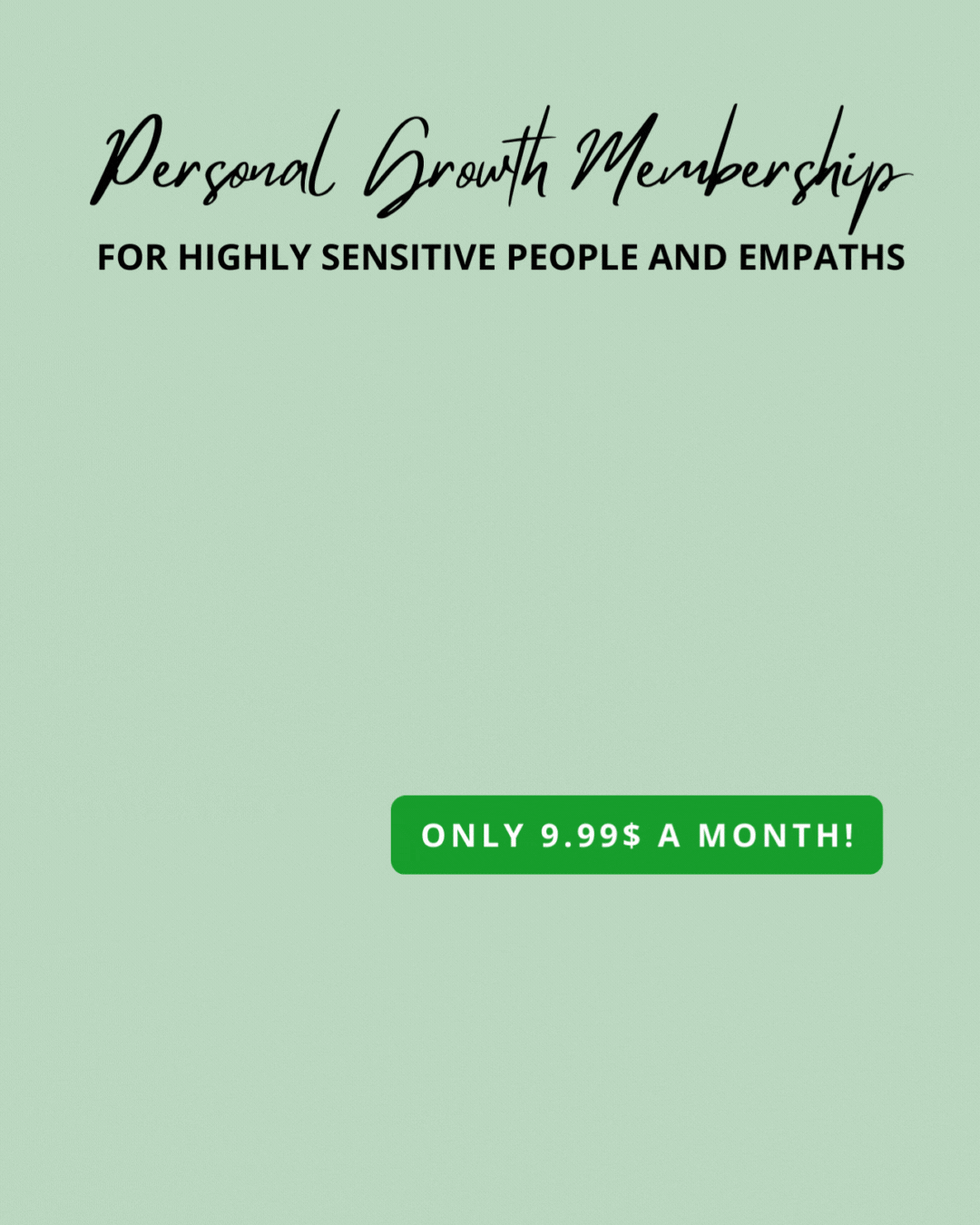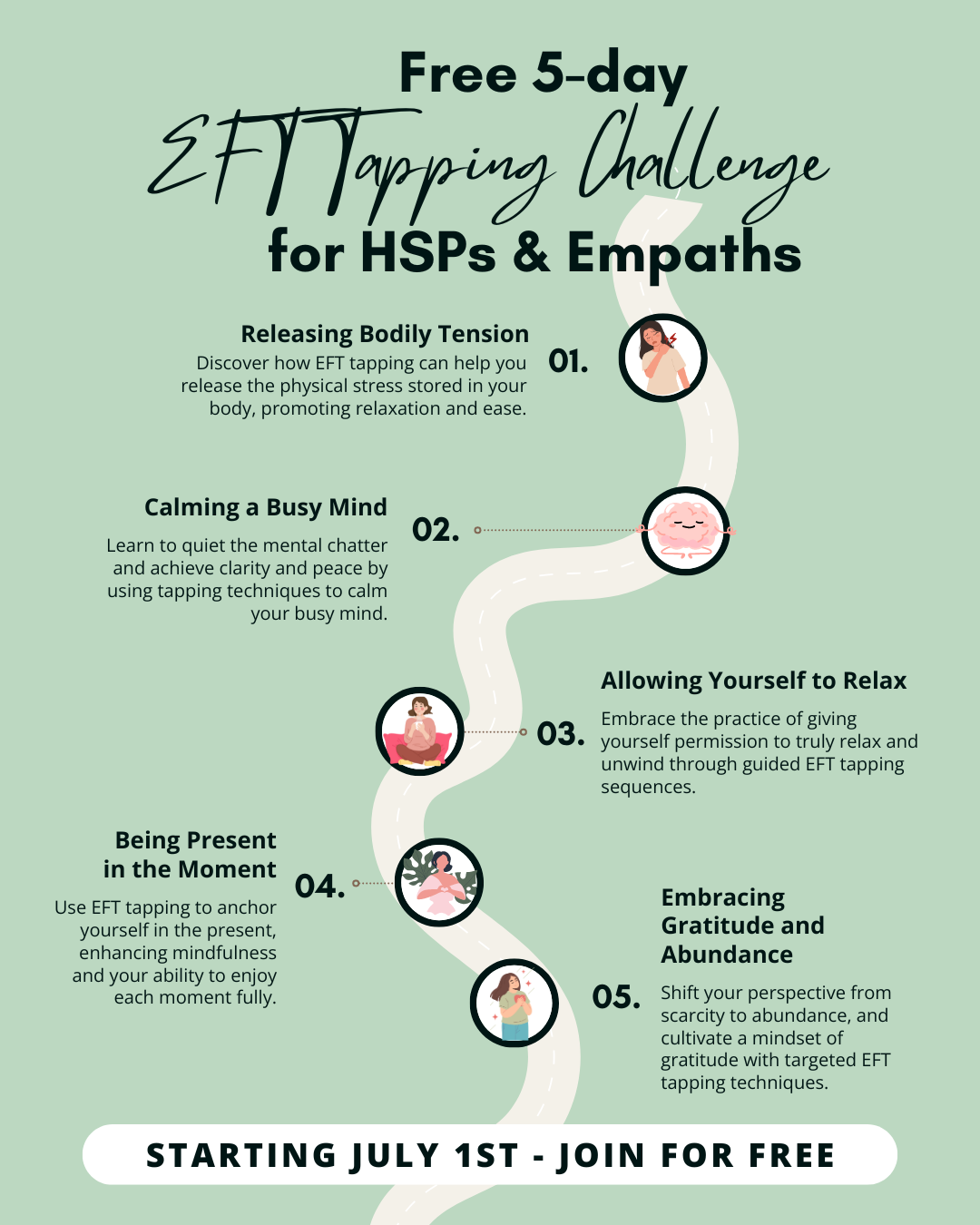Learn how to deal with conflict as an empath without losing your cool. Discover practical communication tools to navigate conflicts easily.
Hey there, lovely readers! We want to be completely transparent with you. Some of the links in this blog are affiliate links, which means if you click on them and make a purchase, we may earn a small commission at no additional cost to you. 😊
We only recommend products and services we genuinely believe in and have personally used or researched. Your support through these links helps us keep bringing you valuable content, so thank you for being amazing!
Estimated reading time: 8 minutes
As an empath, dealing with conflicts can be overwhelming and stressful. But don’t worry, you’re not alone.
On multiple occasions, I’ve struggled with conflict in life. As somebody who used to be highly conflict avoidant, learning how to deal with conflict has been a real challenge.
As an INFJ, my past conflict resolution strategy was the famous INFJ door slam. However, that did not really teach me valuable conflict resolution skills.
As a result, I would find myself hiding behind a bush, scared to encounter the person I so confidently used the door slam on. Oops.
Thankfully, with age and experience, I’ve learned that there are better tools to deal with conflicts. Now, I regularly use these conflict resolution tools to deal with difficult situations.
In this blog post, we’ll explore some typical conflict situations for empaths and I’ll share some valuable strategies to help you navigate them without losing your cool.
By the end of this article, you’ll have practical communication tools to handle conflicts in a compassionate and understanding way. So let’s dive in!
Here’s What You’ll Discover:
Examples of Typical Conflict Situations for Empaths
Empaths often find themselves in difficult conflict situations due to their ability to pick up on the emotions of others.
A common scenario is when an emotional empath deals with a friend or family member with a bias toward them, leading to miscommunication and hurt feelings.
Another situation may arise in the workplace where conflicts between coworkers become collective, making it hard for empaths who feel overwhelmed by group emotional dynamics to cope effectively.
In romantic relationships, empaths may struggle with their partner’s strong emotions and feelings (or the other person’s inability to truly be in touch with their emotions and feelings), causing tension and misunderstandings that can be challenging to address effectively without triggering further conflict.
Conflicts with Friends or Family Members
When we have disagreements with our loved ones, it can be especially challenging for emotional empaths.
Sometimes, I’ve found myself trying to get across my point to my family members and ending up being overwhelmed by my emotions.
In this situations, it was so hard to keep my cool and stay rational. My emotions took over and ratio went out the window.
One key to handling conflicts with family and friends is to practice empathy by actively listening and trying to understand the other person’s perspective.
It’s important not to take hurtful comments personally, which requires the ability to recognize our own biases and work through them.
In navigating conflicts within a family dynamic, focusing on collective goals rather than individual grievances can help reduce tension.
Focusing on collective goals during conflicts within a family dynamic can help reduce tension.
Coping with conflict as an empath requires emotional labor, but developing key skills to deal with conflict as an empath can lead to more positive outcomes in relationships with family members and friends.
Conflicts in the Workplace
The workplace is a breeding ground for conflict, and as an empath, it can be especially challenging to handle.
I remember when I experienced sexism at one of my earlier workplaces and found it so hard to speak up in that moment.
As an empath, I did feel how wrong the situation was, but I felt paralyzed to intervene back then. After all, I was still in my early twenties and let anxiety run my life, rather than confidence and authenticity.
Learning about typical conflicts at work and how to solve them helped me tremendously in life and I hope that it will help you too!
Here are some typical conflict situations you may encounter at work:
1. Miscommunication and Hurt Feelings – misunderstandings can occur in any workplace, and as an empath, you may feel particularly hurt by any perceived slights against you.
2. Collective Conflicts – When conflicts become collective, it can be challenging to manage group emotional dynamics effectively. As a result, you as an empath may feel overwhelmed by the dynamics going on at work.
3. Poor management – another common conflict situation for empaths playing out at work is poor management. When your manager fails to see your needs, this may become an issue for you as an empath. While you are highly capable of anticipating other people’s needs, you may feel frustrated that your manager does not have these skills.

Conflicts in Romantic Relationships
Romantic relationships can be a beautiful journey, but they also come with their fair share of challenges.
My husband and I have had our fair share of conflicts, mostly because I as an empath oftentimes sense the things he is feeling before he is able to verbalize them to me.
From my fellow empathic friends, I know that this is a real struggle in romantic relationships for empaths.
Here are some other common conflicts an empath may experience in romantic relationships:
- Communication issues
- Trust and jealousy
- Differences in values and goals
- Intimacy and sexual issues
- Time and priorities
- Financial disagreements
- Family and friends dynamics
- Power struggles
- Emotional baggage and unresolved past issues
- Lack of quality time and romance
All of the abovementioned conflicts need practical conflict resolution strategies in order to be resolved. So let’s dive into some practical methods that work for empaths.
Strategies for Dealing with Conflict as an Empath
When dealing with conflict as an empath, it’s important to recognize and validate the emotions of all parties involved.
Take a step back and acknowledge that everyone has different thoughts, feelings, and perspectives.
Communicating your understanding of their emotions can help deescalate the situation.
In addition to recognizing others’ emotions, it’s crucial to communicate your own needs in a clear but compassionate manner.
Setting boundaries is another powerful tool for empaths when dealing with conflict. Letting others know what you’re comfortable with and what you’re not can prevent misunderstandings in the future.
Finally, prioritize self-care and emotional regulation by taking time for yourself when needed to avoid burnout and overwhelm during conflicts.
Perhaps you’re wondering how you can manage to do that? Below, I’ll explain every strategy in detail.
Recognize and Validate Emotions
When dealing with conflict as an empath, it’s crucial to recognize and validate the emotions of the other person.
I am still learning how to repeat what the person I am having a conflict with is saying after they are done talking. Instead of immediately responding with my own thoughts, taking a break and repeating what has been said can help to stay rational.
It is a very tough lesson to learn as an emotional empath, but I found it to be very helpful.
One effective way to do this is by actively listening to their concerns without judgment.
As you listen, try acknowledging their feelings by saying something like “I can see why that would be frustrating” or “That sounds really difficult.”
To ensure understanding, reflect back what you hear in your own words.
This not only shows that you’re paying attention but also gives them a chance to clarify any misunderstandings.
By recognizing and validating emotions in this way, you can create a safe space for honest communication and work towards finding a resolution that works for both parties.
Communicate Your Own Needs
When dealing with conflict as an empath, it’s important to communicate your own needs clearly and effectively. Here are some tips on how to do so:
- Be clear about what you need from the situation: Before going into a conversation, take some time to reflect on what you want out of it. This will help you stay focused and avoid getting sidetracked.
- Use ‘I’ statements instead of blaming language: Instead of saying things like “you always make me feel…” try using “I feel this way when…”. This takes away the accusatory tone and puts the focus on your feelings rather than placing blame.
- Express empathy for the other person’s perspective: Acknowledge that their point of view is valid, even if you don’t agree with it. By showing empathy, they’ll be more likely to listen and understand where you’re coming from.
By using these communication techniques, conflicts can be resolved in a compassionate manner without compromising your own needs or emotions.
Set Boundaries
To effectively deal with conflict as an empath, it’s crucial to identify where your own boundaries lie before entering into any resolution discussions.
This allows you to stay grounded and centered during the conversation. Clearly communicate your boundaries as needed, reiterating them if necessary.
It may feel uncomfortable at first, but standing up for yourself is essential in maintaining healthy relationships.
Finally, enforce those boundaries when others try to cross them – this shows that you respect and value yourself enough to protect your emotional well-being. Remember that setting boundaries is not selfish; it’s a necessary act of self-care and empowerment.
Practice Self-Care and Emotional Regulation
Incorporating mindfulness practices like meditation or yoga into your daily routine can be a helpful way to regulate your emotions as an empath.
By taking the time to focus on your breathing and inner thoughts, you can become more attuned to what you need in the moment.
A meditation that works very well for me, is this grounding meditation:
It’s also important not to take on too many responsibilities at once that may lead to feeling overwhelmed and exhausted. Allow yourself the time and space needed for self-care.
Remember, it’s okay to seek support from a trusted friend or therapist when dealing with difficult situations as an empath.
Don’t hesitate to reach out for help if you feel like things are becoming too much to handle alone. Taking care of yourself emotionally is just as important as taking care of others around you.
Some final remarks
In conclusion, being an empath can be challenging when it comes to dealing with conflicts and setting boundaries.
However, by using effective communication techniques, identifying and enforcing your boundaries, practicing self-care and emotional regulation, you can navigate these situations with grace and compassion.
Remember to always prioritize your own emotional well-being and seek support when needed. By doing so, you can maintain healthy relationships and live a fulfilling life as an empath.
It will take time to learn these conflict resolutions skills and you may not immediately master them. Be kind toward yourself and understand that learning takes time and multiple efforts.
Good luck with improving your conflict resolution skills!
What conflicts do you as an empath find the most challenging to deal with? Feel free to share your experience with us in the comments!

Disclaimer: In this article, we collaborated with AI while writing articles, meaning that we used it as a personal assistant to provide valuable information to our readers. The personal touch through stories and personal examples and the editing of the article have been performed by the author.









